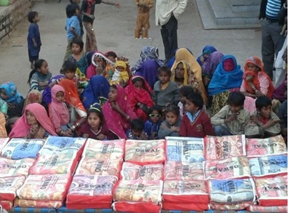
SAN JOSE, CA: Two major seminars on subjects that impact the global Hindu community will be hosted at the Global Hindu Conference 2014, scheduled for Saturday April 26 and Sunday April 27 in San Jose, CA.
Global Hindu Conference is sponsored by a number of Hindu organizations and is organized by Global Hindu Foundation Inc. One of the two seminars is on development of Hindu Historiography. This seminar is one of its kind initiative that is being done outside of, and in parallel to, the conventional academic establishment.
Sumeet Saxena, the coordinator and chair of the historiography seminar, said here that history plays too important a role in self-identification of Hindus all over the world, to be left only to the academia to deal with. The informal sector could also engage equally in history writing.
The conventional academic framework, which is based on Western worldview, is inadequate to capture the complexity of Hindu culture and civilizational experience, in order to properly express the Hindu historical narrative. Thus, the western expression of Hindu history often stands at odds with the representation of Hindu community in global public affairs, leading to atypical “caste-sati” type caricatures, mocking and even hate crimes.
Decades of discrimination has led to low self-esteem among Hindu youth, who now shun their Hindu identity in public spaces. Therefore, the use of unorthodox methods and setting is needed to accomplish the task of Hindu historiographical development.
The history seminar will feature author Vishal Agarwal who has masterfully written an elaborate critique of Wendy Doniger’s “The Hindus: An Alternative History.” Dr Doniger is one of the prominent Western Indologists who had authored the controversial book on history of Hindus, demeaning Hinduism as a religion of sex and perversion.
An activist organization in India had taken her publisher to the courts, and as an outcome of the legal process, the court had ordered the pulping of her book. Agarwal, a Hindu scholar-teacher and a practitioner, has critiqued Dr Doniger’s book paragraph by paragraph. His work is being released in a book titled “The New Stereotypes of Hindus in Western Indology,” at the conference.
Paramacharya Sadasivanatha-swami and Acharya Arumuganat-haswami, editor and managing editor, respectively, of Hinduism Today magazine will conduct a special session on the representation of Hinduism in American public schools. The presentation will draw on their two decades of experience with the portrayal of Hinduism in school textbooks.
The target audience will be parents of Hindu children and social studies school teachers who teach Hinduism in public schools. The special session will feature the Northern California premiere of their documentary titled “The History of Hindu India”. The documentary establishes a historical continuum of faith and practice by narrating the history of Hinduism since the Indus Valley civilization until the modern age.
The other seminar at the conference will be on Hinduism-Christianity Comparative Religion. The purpose of the comparative religion seminar is to build competencies for a deeper and more meaningful engagement with the Christian world. The current Hindu-Christian interlocution is largely one-sided where the Hindus have been dependent on old ideological formulations that were formed in a colonial milieu of 19th century India, which is acutely compromised in its core and one that has yielded indeterminate results. This necessitates the need to learn more and understand Christianity in a new light from its original sources.
The book “What Every Hindu Should Know About Christianity” authored by Kalavai Venkat, will be released at the conference. Venkat, a scholar of comparative religion, in his book leverages cutting-edge scholarly researches in textual criticism and cognitive sciences to arrive at a reasonable understanding of Christian beliefs. The findings it presents reveal a hitherto unknown face of Christianity to the rational Hindu.
Venkat, in his book, provides a roadmap on how Hindus should engage Christianity.
Plight of Hindu refugees from Pak
The conference will also unveil a comprehensive plan for providing relief to Pakistani Hindu refugees, who are languishing in various refugee camps all over India. Rahul Chandra, project director of the Sindh Hindu Heritage and Empowerment program, stated that refugee rehabilitation must be integrated with the more holistic mission of Sindh Hindu heritage revival, in order to effect a more meaningful relationship between the Pakistani Hindu refugees and the global Hindu community.
Touching upon the purpose and vision behind the whole exercise, Rajiv Varma, the conference director, observed that the central theme of the meet is to build intellectual competencies among the Hindus for a meaningful engagement with the outside world. Development of Hindu historiography is a must to write an authentic Hindu narrative. He added that it is imperative to build Hindu ideological competencies, and incrementally build clarity on the nature of Hinduism in relation to Abrahamic religions in general, and with Christianity in particular, in order to provide ideological direction to the next generation of Hindus.
He also outlined a vision of establishing a comprehensive program for reviving Sindh’s classical Hindu heritage, and integrating the efforts towards Pakistani Hindu refugee rehabilitation into that program. He clarified that this is necessary to establish an emotional and cultural connection between refugees and the global Hindu community.
Suri Swamy






